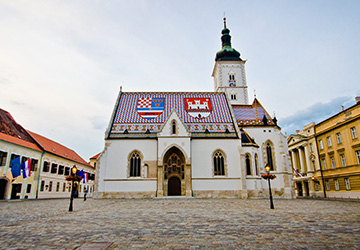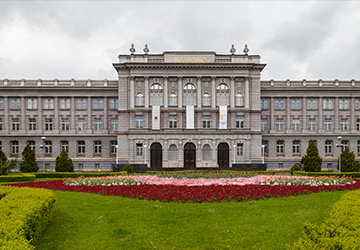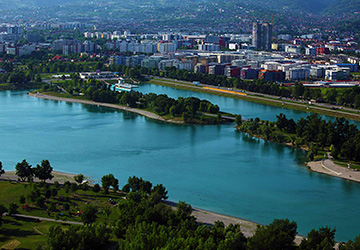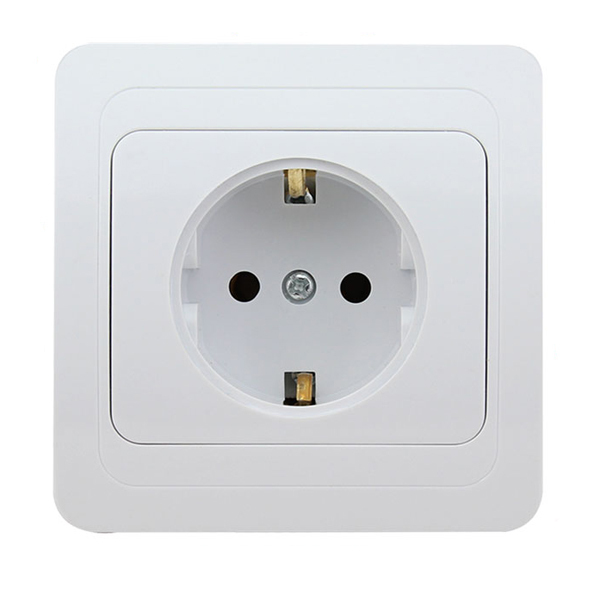About
Zagreb
Zagreb is the capital city of the Republic of Croatia and the largest city in the country. The city grew from two settlements on neighbouring hills, Gradec and Kaptol, which form the core of today‘s Zagreb and its historic centre. Today the Croatian capital represents its country’s economic, cultural and scientific centre. Zagreb is situated in the northwest of the country, next to the Slovenian and the Hungarian borders, which makes it a key traffic point in this part of the continent. Zagreb is commonly referred to as the city where Central Europe, the Mediterranean and Southeast Europe meet.
Zagreb is especially known for its cultural sites. Ban Josip Jelačić Square is the heart of the Croatian metropolis. Kaptol and Gradec arise north of it. Kaptol has been the city’s religious centre throughout its history, while Gradec has always been considered the more secular part of town. The latter continued to become the country’s political centre, where on St. Mark’s Square the most important governmental buildings can be found. These include the Croatian Parliament, the Constitutional Court of Croatia and “Banski dvori”, in which the Croatian Government convenes. Gradec and Kaptol are connected by Tkalčićeva Street, which is best known for its numerous coffee shops and restaurants.



There are many beautiful sites to be seen in - green parks, fountains, museums, theatres, cinemas, and so much more! In fact, Zagreb is the city with the most museums per capita in the world. Student life also flourishes in the city. Its rich nightlife and lots of events offer a little something for everyone’s taste. You can find more information on everything Zagreb has to offer here.
Useful information about Zagreb and Croatia
- VISA – The majority of foreign visitors don’t need visa to enter Croatia, including, but not limited to, EU countries, UK, USA, Australia, Canada, and New Zealand. If you require a visa to enter Croatia, but hold a valid Schengen visa, as well as visas for Cyprus, Romania and Bulgaria, you don’t need a separate visa for Croatia. If you require a visa, please contact us via e-mail (cross.pr@mefhr.org) to help you with the process.
- CURRENCY – The official curreny of Croatia is euro (€), since Croatia is a member of the European Union.
- TIMEZONE – CET (GMT+1)
- WEATHER – Croatia has three distinct climates: continental climate in its interior, the Mediterranean climate along the coast, and the mountain climate above 1200 m. Zagreb has a warm humid climate with hot summers and no dry season. The expected temperatures in April are mild, with daily highs increasing from 15°C to 21°C over the course of the month.
- PUBLIC TRANSPORT – In Zagreb, buses and trams are the best way to get around the city. The tickets can be purchased from the driver or at kiosks
- TAXI – Taxis in Zagreb aren’t of any specific colour and can instead be identified by a “TAXI” plate on their rooftop.“
- TIPPING – Although tipping in Croatia isn’t mandatory, it is always appreciated.
- SMOKING – In Croatia, smoking is forbidden in public institutions such as hospitals, universities, clinics, schools, nurseriers, restaurants and cafes. Most of the cafes have dedicated smoking areas though.
- VOLTAGE/ELECTRICAL CURRENT – The city’s powerline supplies electricity at 220 V, 50 Hz.
The sockets look like this:
If needed, adapters and transformers can be bought at the airport and in certain shops throughout the city. - EMERGENCY NUMBER: 112